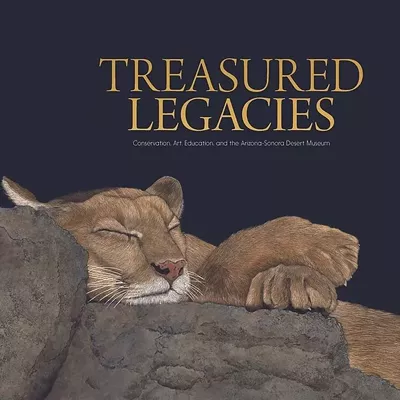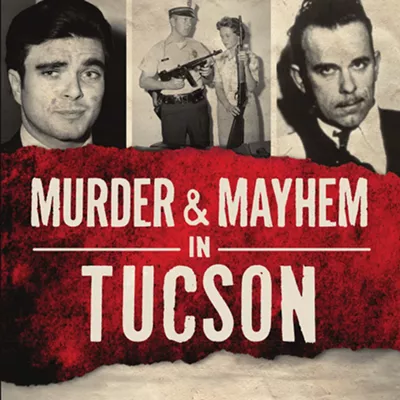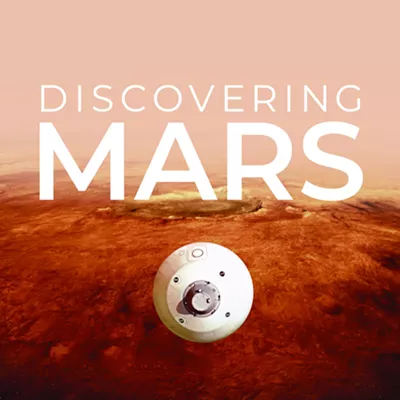Tucson Author Tom Miller's Cuba, Hot and Cold has just hit bookshelves across the country. Miller has written extensively about Cuba and Latin America; his books include Revenge of the Saguaro, Trading with the Enemy: A Yankee Travels through Castro's Cuba and The Panana Hat Trail. This Q&A has been edited for length and clarity. Miller will appear on the radio edition of Zona Politics with Jim Nintzel at 5 p.m. Sunday, Dec. 10, on community radio KXCI, 91.3 FM.
Cuba, Hot and Cold is an intimate look at Cuba and the people who live there. What do you hope people take away from this book?
When the U.S. and Cuba finally came to their senses and established this sort of detante, everybody said: "I gotta get there. I gotta get there before it changes. What I want them to take from the book is: You don't have to get there before it changes. It's gonna keep changing for the next five, 10, 20, 30 years. When people say they want to get there before it changes, they're really saying they want to get there before McDonald's gets there. But the changes have already taken place, and they're going to continue to take place. I think that people who are so eager to get there are making a mistake. They can take their time and read up on it and enjoy it when they go.
You've been traveling to Cuba for 30 years now—what first drew you there?
It was partly political and partly journalistic. The journalistic part was that Cuba was and still is the best story in the Americas. And also political: I was part of the anti-war movement, and we would read underground newspapers not just from around the United States, but we would read Gramma, which was the communist party newspaper in Cuba. It was a terrible newspaper. It still is; it is an awful newspaper. But it tells you what is going on there. It tells you who is in charge and what their politics are. And in the anti-war movement, there was always a spot for Cuba at the table. It was at the far end of the table, but there was a spot for Cuba at the table. And because of the taboo, because of the embargo, it became more and more tempting to go.
The CIA asked you to spy on their behalf. Talk about that.
The CIA is not very efficient, but they are very curious. They're nosy. On a few occasions, they've asked if I would do some snooping around for them. I told them no. One time, they invited me from Tucson to Washington, D.C., to give a talk to the CIA. They said they would cover my expenses, my housing, everything. I asked, "What is it that you want from me?" They said, "We just want to chat with you about Cuba, and we'll pay you $500"—$500 to talk to the CIA? Please.
They are lowballing it at that point.
Yeah, they are. Maybe they were just testing me to see how I would respond. I said, "No, anything I would say to the CIA is something I would write in my books, so if you want to find out my observations, you'll have to read my books." It's a clever way to increase sales.
You've written for the New York Times, Smithsonian, Life, Rolling Stone and many other publications, but you came up through the underground press in the 1960s in the Vietnam War era. Talk a little bit about your experiences.
The underground press is different from the alternative press. That's rule No. 1 that you have to understand. The underground press was made up of people who had certain political attitudes. They were pretty much anti-state—the city government, the state government—wherever they were, and they were usually pushing for changes in American society. They were marginal at best, and the margins weren't very good, whether the political margins or the typographical margins. What we did was put in papers in various cities, the Washington Free Press, the Speckled Bird in Atlanta, the Austin Rag, the L.A. Free Press.
What drew you to the underground press?
What drew me to the underground press was the papers' attitudes were very laisse-faire. What drew me to the underground press were their politics, which was anti-war. There were a lot of things that drew me to the underground press. Now eventually, I think it was in 1972, there was a meeting of the underground press activists in Boulder, Colorado, and Tom Fordade, who was the head of something called the Underground Press Syndicate, organized something and said, "We are no longer the underground press. We are now the alternative press." Myself and a few others started a group called Old Farts of the Underground Press. We wanted to keep the underground press alive as much as possible. What drew me and others to the underground press was the availability on moving on and moving up and moving out.
You got subpoenaed to testify before a grand jury by the U.S. Justice Department as a result of some of your work in the underground press and you refused to enter the room.
The Justice Department was investigating the anti-war movement, which I was a part of, obviously, and they subpoenaed me and a few others to come in and talk to them. Not only did I refuse to testify, I refused to enter the grand jury room. To enter the grand jury room, in that private setting—other people don't know if you are ratting on them or what you're saying or who you are saying it to. It would have wrecked your journalistic career. It would affect your ability to gain confidence from your sources, and that's exactly the argument we used. It lasted about six or eight months, and by the time they were ready to subpoena me again, the grand jury itself had expired. So I won the case.
How'd you make the leap to magazine writing?
It came about in almost the easiest way. There was a magazine called Sundance; it lasted three or four issues. It was the best writers in the underground press, the best layout people, the best designers. Everything was terrific, but they had no business sense whatsoever. I wrote a short, little piece for Sundance, and a few weeks later, I got a letter from an editor at Esquire. "Dear Mr. Miller, we appreciate your article in Sundance. If you don't mind me asking, how much did they pay you for that article?" I said I'd get $50 if they ever get around to paying me. He said, "That's too bad, we would have paid you $750 for the same article. Would you like to write for us?" Yes, I'd like to write for Esquire, of course! That's how I made the leap from one to another.







